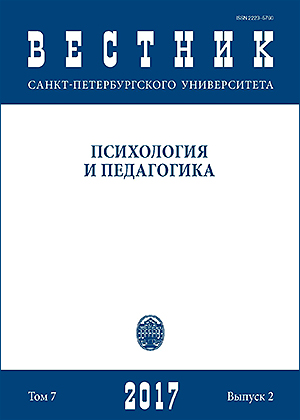Positive and negative aspects of students’ perfectionist attitudes
DOI:
https://doi.org/10.21638/11701/spbu16.2017.201Abstract
The article describes the procedure and study results of positive and negative aspects of students’ perfectionist attitudes. The study was carried out among students taking bachelor and master’s courses at St. Petersburg State University. The study was the first to discover significant relationships between the students’ perfectionist attitudes “High standards and ambitions” and cognitive motivation, social skills and psychological adaptation, which confirms the adaptive nature of the scale. Students’ perfectionist attitudes “Self-critical attitude and the lack of self-confidence” and “Constant comparison to those who are the most successful” are negatively linked with adaptation, social skills and social awareness, which confirms the non-adaptive nature of these attitudes. The study has confirmed the 3-scale structure of “the Questionnaire” which had previously been adapted for technical university students. The structure is reproduced unchanged in different sex and age samples of technical university students and students-psychologists.
Keywords:
adaptation of “the Questionnaire of Perfectionism», students’ positive perfectionist attitudes, motivation, social intelligence, adaptation
Downloads
References
References
References
Suh N., Gnilka P.B., Rice K.G. Perfectionism and well-being: A positive psychology framework. Personality and Individual Differences, 2017, vol. 111, no. 1, рр. 25–30.
Downloads
Published
How to Cite
Issue
Section
License
Articles of "Vestnik of Saint Petersburg University. Psychology" are open access distributed under the terms of the License Agreement with Saint Petersburg State University, which permits to the authors unrestricted distribution and self-archiving free of charge.




